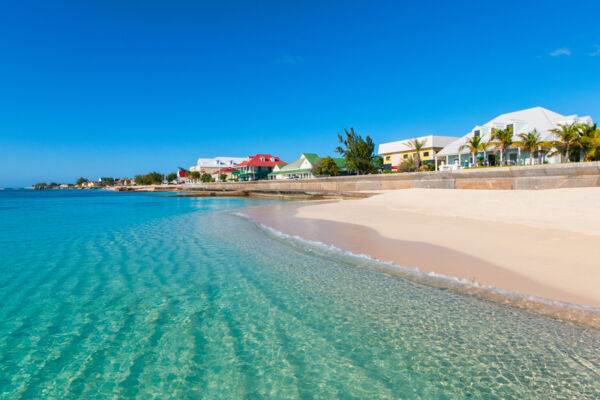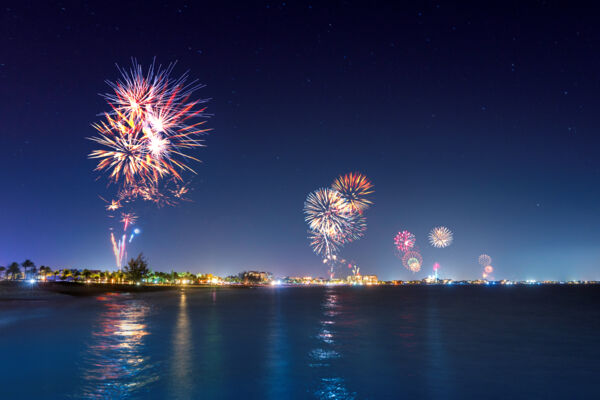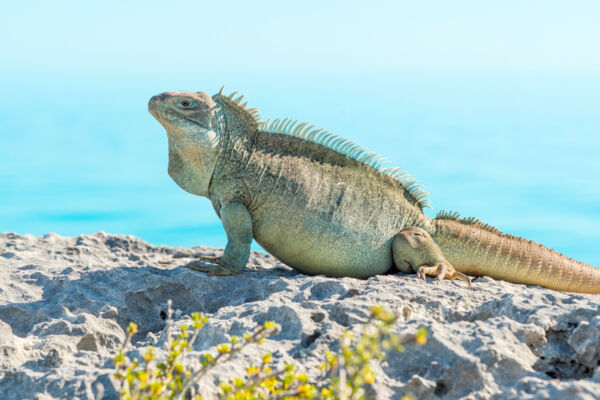Etiquette & Tipping in Turks & Caicos

The culture in the Turks and Caicos is heavily influenced by American culture, and much more so than British culture, despite the country being a British Overseas Territory. People are moderately more conservative than in the US or the UK, but not significantly so.
While English is the official language, many hospitality staff are Haitian (who speak French Creole), Dominican (Spanish), or Filipino (Tagalog). The predominant religion is various forms of Christianity.
A general greeting in the Turks and Caicos is a handshake, as in the US or the UK. Hugs or kisses are not normal (unless between relatives or close friends).
There is generally a high level of respect for seniority and elders.
When entering spaces or businesses where persons are waiting or gathered, such as Government offices, it is common to greet the room with "Good morning", "Morning, morning, morning", or "Good afternoon".
Time
Within the local community, it’s common to arrive on island time—that is to say, 5–40 minutes late. This is typically not the case with tourism-oriented businesses, as there are usually stricter times with regard to schedules (especially for shared boat tours and ferries). If you hear someone refer to island time, it means likely arriving late.
Clothing and Attire
Some businesses have restrictions on beachwear being permitted attire for entry, with notable inclusions being the main supermarkets. Security guards will generally refuse entry for women wearing bikinis or men without shirts.
This isn’t the case with beach restaurants, which generally allow any beach attire. Note that some staff and other patrons may take offense at scanty clothing, and photos and videos of scantily clad tourists occasionally make the rounds on social media.
Most restaurants in Turks and Caicos have a casual dress code, including the more expensive ones. No restaurant on Providenciales requires formal dress, such as a suit and tie for men or dresses and heels for women.
Taxes

There is no general sales tax, VAT, or GST in the Turks and Caicos, but most tourism-oriented businesses (including all accommodations) charge a 12% Hotel and Tourism Tax.
Hotels and hotel restaurants are also required by the Government to charge a 10% Service Charge. This is similar to a tip or gratuity but is different in that all non-managerial employees of a business share it, and not just the staff with whom you are dealing.
Some accommodations also add a 5% Facility Fee to bills, which is just another charge that businesses may keep but that isn’t taxed by the Government.
Other Taxes
Tourism Tax, Service Charge, and Facility Fee, if present, are the only mandatory taxes. Anything else—such as City Tax or any other tax—is not a legal tax, and you should not pay it.
Note that some businesses use US software, and the 12% Tourism Tax is labeled as 12% Sales Tax.
Tipping
Tips of around 15% are expected for nearly all service jobs in the Turks and Caicos, such as taxi drivers and waiters.
Some businesses automatically include gratuity on bills, so check first.
For activities such as boat charters, a tip of 10–25% (depending on your experience) is expected. For shared boat cruises, a tip of around $10–$20 per person is normal.
The Turks and Caicos uses the US dollar. See Turks and Caicos Currency for information on accepted payment methods and ATM locations.
Service Charge vs. Gratuity (Tip)
Service Charge (10%) is a mandatory government tax that all hotels and hotel restaurants in the Turks and Caicos must apply to bills, and is different from an optional gratuity or tip. Some businesses charge a higher amount—however, this is illegal. Service Charge is shared by all non-managerial employees of a business, and not just the person you deal with.
If you are patronizing a business that charges Service Charge, you can decide how much gratuity—which normally goes only to your server—to leave above this amount. It's recommended to leave at least an additional 5% to bring the total Service Charge and gratuity up to the expected 15%.
Practices to Avoid

Common criticisms of visitors to the Turks and Caicos include poor driving practices, jaywalking and walking in the road, referring to the Turks and Caicos as Turks, using strongly pungent sunscreens, and wearing overly casual clothing outside of a beach or boating setting.
The general driving practices and skills of many residents in the Turks and Caicos are remarkably poor, yet it’s nevertheless common for inhabitants to criticize tourists who drive on the wrong side of the road or incorrectly use roundabouts. Residents and visitors who are not familiar with the UK Highway Code protocol should see Driving in the Turks and Caicos.
Some more environmentally conscious residents strongly dislike when visitors feed wildlife, touch or stand on the reef, fish or collect conch in protected areas, create stone stacks, chase or harass marine mammals and wildlife, drive on the beach, or use sunscreens in the ocean that are damaging to coral reefs.
